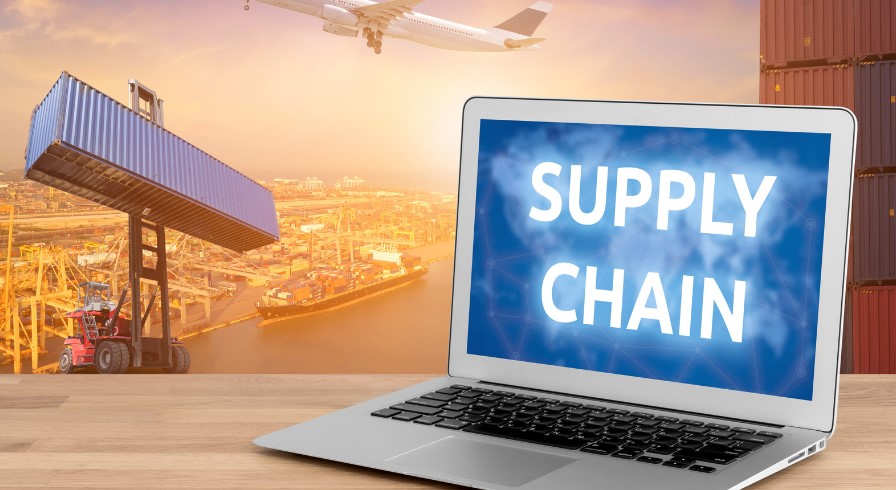The efficiency and flexibility of supply chains have become essential factors of success in the fast-changing business environment. Businesses are always looking for ways to improve their supply chains to keep pace with the ever-increasing consumer demands as well as stay ahead in a highly competitive world market, which is becoming more and more integrated day by day.
Streamlining Supply Chains – An Innovative Approaches in Logistics
Digitalization and Data Analytics
The logistics industry has greatly benefited from digital technologies and data analysis. Through big data and predictive analytics, organizations can determine areas in the supply chain that require enhancement or streamlining. This leads to cost savings and improved operations within the entire supply chain: today, it is possible to see the data on what is happening in reality about demand, inventory control, and goods delivery routes.

In addition, supply chain strategic planning greatly depends on digitalization as well as data analytics. Companies can develop better and more adaptable supply chain strategies when they analyze historical information along with studying market trends.
Automation and Robotics
Traditional warehouse operations are no longer the same due to automation and robotics which have made it possible for orders to be filled accurately and at higher speeds. The use of automated guided vehicles (AGVs), robotic pickers, and sorting systems has facilitated the flow of merchandise in storage facilities, reducing errors and improving output.
Besides, progress made in autonomous vehicles is changing the transport industry as well, with self-driving trucks and drones offering faster and more cost-effective delivery options, particularly for last-mile logistics.
Blockchain Technology
There are immense possibilities for blockchain technology to enhance visibility as well as safety in the logistics sector. By creating a decentralized and immutable ledger, blockchain will make sure that products can be seen throughout their supply chain journey. Preventing fraud and fake products, as well as enhancing confidence and cooperation in the parties involved. Blockchain-enabled smart contracts enhance and simplify logistical operations through automated payment and contract enforcement.
Collaboration and Network Optimization

In today’s interconnected world, collaboration among supply chain partners is more important than ever. Companies are increasingly forming strategic alliances and partnerships to optimize their logistics networks, sharing resources, infrastructure, and information to achieve mutual benefits.
Such collaborative transport and distribution infrastructures help in cutting costs, and reducing non-value-added activities while increasing adaptability at lower investment risk cost so that it can respond effectively to shifting market variables and client orders.
Sustainability and Green Logistics
Logistics operations are now being designed with sustainability in mind due to increased concern for the environment. Green logistics has been adopted by firms to reduce global warming and preserve the environment. Some of these ways are through the use of biofuels, creating better routes that emit less gas, and packaging with materials that can easily decompose. Sustainability in logistics is part of corporate social responsibility (CSR) which leads to some monetary value as well as other advantages over time when considered properly.
Predictive Maintenance
Advanced analytics and machine learning algorithms are used in predictive maintenance to predict equipment failure and allow for proactive maintenance that reduces downtime. This is possible through continuous monitoring of machine and vehicle condition and performance, by which companies can prevent unforeseen breakdowns, optimize maintenance routines as well as extend the life of their assets. In addition to lowering maintenance expenses, predictive maintenance improves the dependability of operations and increases customer satisfaction.
Advanced technology, evolving consumer demands, and international market forces are causing a great revolution in the field of logistics. Companies may optimize their supply chains, improve competitiveness, and succeed in the complex global environment through the integration of digitalization, automation, blockchain, collaboration, sustainability, and predictive maintenance into their operations. Embracing change, taking advantage of new technologies, and always adapting to changing customer requirements are crucial factors for success.
Author Profile

- Blogger by Passion | Contributor to many Business Blogs in the United Kingdom | Fascinated to Write Blogs in Business & Startup Niches |
Latest entries
 FinanceFebruary 26, 2026Centrepay End Dates Make Repayments More Predictable for Centrelink Borrowers
FinanceFebruary 26, 2026Centrepay End Dates Make Repayments More Predictable for Centrelink Borrowers FinanceFebruary 26, 2026Payday Loans Get Better Product Matching Under Target Market Rules
FinanceFebruary 26, 2026Payday Loans Get Better Product Matching Under Target Market Rules FinanceFebruary 7, 2026The Main Types of Online Fundraising Used by Charities
FinanceFebruary 7, 2026The Main Types of Online Fundraising Used by Charities BusinessJanuary 9, 20266 Fastest Cash House Buyers in the UK 2026
BusinessJanuary 9, 20266 Fastest Cash House Buyers in the UK 2026





